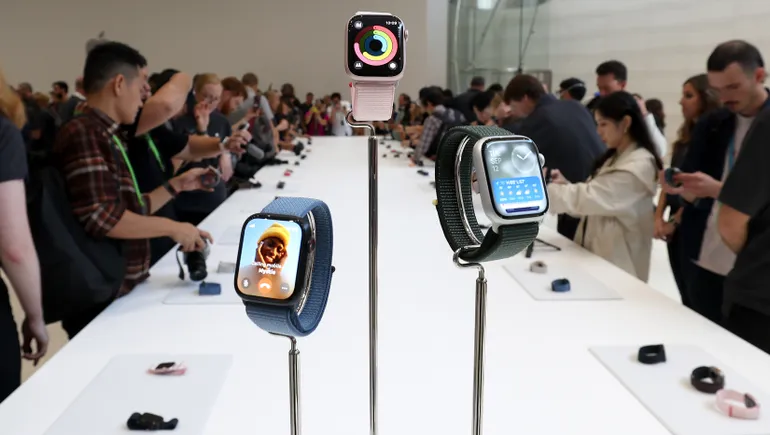Apple has announced significant new health-tracking features for its smartwatch and AirPods Pro 2, aiming to enhance its role in consumer health technology. The company revealed plans to introduce sleep apnea detection to its Apple Watch, along with hearing aid capabilities to its AirPods Pro 2. These updates follow Apple’s pattern of continually integrating advanced health-monitoring functions into its devices since the first Apple Watch was released in 2015.
The new sleep apnea feature on the Apple Watch utilizes the device’s accelerometer to monitor the wearer’s wrist movements indicative of breathing disturbances during sleep. This tool is designed to flag moderate-to-severe cases of sleep apnea, evaluating data over 30-day periods. If consistent signs of sleep apnea are detected, the wearer will receive notifications. This addition was developed from machine learning algorithms trained with data from clinical-grade sleep apnea tests and has been validated through a clinical study. Users will be able to download a PDF containing detailed data on detected sleep apnea incidents and a three-month history of breathing disturbances, which they can then discuss with a healthcare provider.
The announcement came with the expectation that the U.S. Food and Drug Administration (FDA), alongside other global health authorities, will soon authorize this feature. Apple aims to launch it in over 150 countries and regions including the U.S., the European Union, and Japan. Given that Samsung previously received de novo authorization from the FDA for a similar feature, Apple’s new service is following an established regulatory pathway.
In parallel, Apple is upgrading its AirPods Pro 2 with new hearing features set to launch in the fall. The update includes a pure-tone audiometry test, which allows users to conduct a hearing test using their AirPods and an iPhone or iPad. Based on the test’s results, the AirPods can then amplify certain sounds to assist users with mild-to-moderate hearing loss, effectively serving as an over-the-counter hearing aid. Additionally, Apple plans to implement a hearing protection feature to safeguard users from high noise levels. These capabilities are expected to be available in over 100 countries, marking a significant expansion in Apple’s health technology offerings.
The integration of these health services into widely used consumer devices like the Apple Watch and AirPods Pro 2 could have considerable implications for the health device industry and medical professionals. Companies like ResMed and Philips, which produce devices to manage sleep apnea, might find new opportunities in the wake of more widespread detection of the condition through popular wearables. ResMed’s Chief Medical Officer, Carlos Nunez, highlighted that features like Apple’s could drive more conversations about sleep apnea, a condition that often goes undiscussed. Additionally, ResMed CEO Mick Farrell has predicted that broader detection capabilities in wearables could lead to a “tidal wave” of new patients needing treatment, potentially creating a significant shift in the patient management landscape.
Overall, Apple’s new features on the Apple Watch and AirPods Pro 2 are set to offer more people accessible and convenient tools for managing and monitoring potential health issues. This could potentially lead to earlier detection of conditions like sleep apnea and hearing loss, encouraging more timely and effective interventions. As these features roll out, they promise to further cement wearables as an integral part of health monitoring and management in everyday life.
#Apple #adding #sleep #apnea #feature #smartwatch



